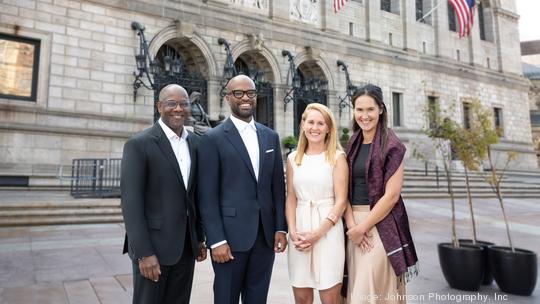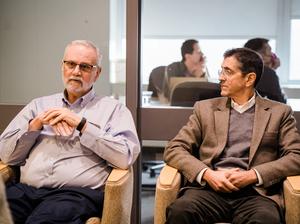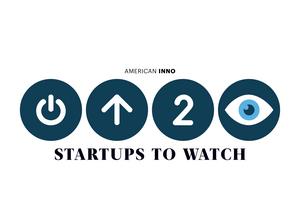
We started 2022 talking about the Great Resignation, moved onto covering layoffs at tech companies of all sizes, watched a crypto meltdown and ended the year with Elon Musk taking over Twitter. Who had all of that on their bingo card for this year?
It can be difficult to predict the business trends of the future. But we gave it a try by turning to some of Boston’s venture capitalists, who closely watch the trends in tech, funding, hiring and more all year.
This year, BostInno solicited input from Rudina Seseri, founder and managing partner of Glasswing Ventures; Russ Wilcox, partner at Pillar VC; Tasneem Dohadwala, founding partner at Excelestar Ventures; and Jason Robart, co-founder and managing partner at Seae Ventures, about the trends they’re watching for 2023.
These answers have been edited for length and clarity.
What tech industries do you expect to get a lot of attention in 2023?
Wilcox: We may see advanced production returning to U.S. shores this decade and so I expect rising interest in manufacturing, supply chain, and logistics.
Robart: We focus on health care services and technology and continue to see tremendous opportunities in this space broadly. We are seeing great innovations in areas like personalized diagnostics and therapeutics, improving access to behavioral health and enabling value-based care as just a few examples. With Boston as a hub of health care, there is no shortage of companies right in our backyard.
Sign up for The Beat, BostInno’s free daily innovation newsletter. See past examples here.
Seseri: I expect that the broad and significant attention on generative AI models such as DALL-E and GPT-3 from those even outside of the tech industry will accelerate business adoption of the technology in 2023. The key will be determining which applications of new technologies and models will unlock true business value. To date, the adoption of these models has been primarily by consumers or as a “feature” of a wider product, and enterprise technology leaders generally still do not know what to do with the most flashy demonstrations of generative AI.
In that same vein, what local companies do you think everyone should be watching next year?
Seseri: One Boston-area generative AI company to watch is Common Sense Machines. Built by a team of former MIT Ph.D.'s, DeepMind researchers, and repeat founders, the startup has built CommonSim-1, a neural simulation engine controlled by images, actions and text and grows and adapts with experience.
Dohadwala: Boston is home to an impressive 59 robotics companies, including iRobot, Boston Dynamics, Realtime Robotics, which is a huge number given its geographical size. I believe investors in Boston are willing to dig deeper into harder technical problems and truly want to understand the differentiation. There’s also an established venture community with various serial entrepreneurs who really understand the science behind running a thriving startup.
Wilcox: A Boston company to watch is Verve Motion, which makes powered "exosuits" that allow warehouse workers to lift boxes more easily and safely. More generally, Boston is the leading U.S. city for 3D printing, and over time you can expect more growth here as the technology gradually scales up to the factory floor. We already have local leaders like Desktop Metal and Formlabs, and there is a new crop coming up behind them.
What will M&A activity look like next year?
Wilcox: M&A activity should soar this year. High interest rates will drive down the valuation of previously high-flying startups and make them temporarily affordable buys for profitable mature companies.
Robart: We did see an acceleration of M&A discussions, even at earlier stage companies, as market conditions tightened up. We expect to see that continue in 2023.
How do you foresee market conditions impacting venture capital or fundraising in 2023?
Dohadwala: Given the current economic climate, it’s unlikely that people are going to be putting their money into VCs next year. I believe there will be a higher standard of reserving funds in VCs and companies are going to have a harder time raising money. While it may look like there’s an increase due to inflation, companies will need more money due to their costs being sizably higher.
Seseri: Fundraising across stages will be more challenging than it was in 2021 as the bar has increased to raise each consecutive round of financing. However, we will continue to see the most promising companies secure funding. This next market cycle will emphasize sustainable company-building and governance in startups. Growth will not be the only priority as companies scale up, as it has frequently been in the preceding two years.
Robart: It will be more difficult. Full stop. But not impossible. It will take longer; investors will be looking for more certainty and proof points. Valuations will be scrutinized. There is significant money that is available to be deployed but the bar is certainly higher than it has been the past few years.
What advice do you have for startups navigating this environment?
Dohadwala: Startups need to be sure they’re articulating their vision and setting strategy to enact that vision. This includes making sure their milestones line up with things that are truly valued in the market. They’ll also need to understand their cash needs and be willing to absorb delays and any hesitation. Good ways to prepare for this include: Making sure they leave plenty of time for fundraising; understanding their supply chain; and knowing their sales cycle, and more specifically, where there might be delays.
Robart: Stay focused. Be able to articulate a clear strategy and establish clear milestones that will demonstrate progress over time. No one expects an early stage company in any industry to have a large customer base or a long track record of growth but you have to be able to tell a compelling story, back it up with an innovative product or service that is solving a real problem and establish those success metrics early on that demonstrate you are executing on the strategy you laid out. It can be easy to get discouraged, particularly for those entrepreneurs that have not gone through a downturn before. But remember why you are doing this and recognize that cycles are inevitable.
Any final words?
Seseri: I strongly believe that innovation shines the brightest in dark times. So many iconic companies have been founded and nurtured during recessionary periods — Slack, Uber, and Cloudflare were all founded during the 2008/09 recession, as well as Snowflake, DigitalOcean, and Zoom were all products of 2011/12’s economic downturn. Today’s challenging economic times can still lead to tomorrow’s Unicorns.
Dohadwala: In general, challenging times (inflation high, clogged supply chains, political turmoil, market decreasing) will lead to tremendous disruption and innovation — we will be looking for it!








